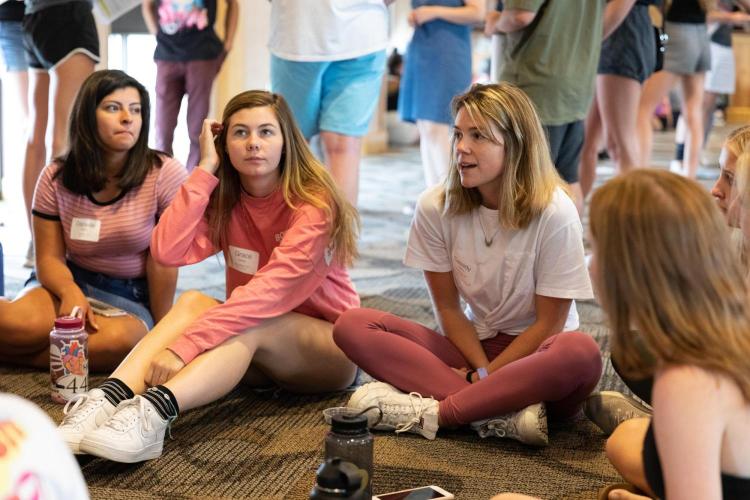 There are professional skills that are relevant to any job in any industry. Many employers value these foundational skills, which can help you become a strong candidate when applying for internships and jobs.
There are professional skills that are relevant to any job in any industry. Many employers value these foundational skills, which can help you become a strong candidate when applying for internships and jobs.
Communication is one foundational skill that can help you in school, your career and other areas of life. Strong communication skills include being able to convey thoughts and ideas clearly and concisely in written, oral and visual forms. Here are some ways you can work on building your communication skills during your time at CU Boulder.
Verbal communication
Choose your words thoughtfully and intentionally in your everyday conversations.
- Ask open-ended questions and demonstrate curiosity.
- Do your best to avoid slang, jargon, excessive use of acronyms and offensive or exclusionary language.
- Observe the person you are talking to and consider whether they seem confused or need more clarification. Use this information to identify areas for improvement.
- Think about your tendencies regarding classroom discussions and speaking up in class, and set goals to challenge yourself. You could plan to speak up more or be more intentional when speaking if you know you tend to monopolize conversations.
To get more practice, consider different opportunities to get involved on campus. Becoming a tutor mentor, applying to work at the Recreation Center or working in customer service are all great ways to build verbal communication skills.
Listening
Listening with intention can help you gain understanding and clarity and communicate more effectively.
- In your conversations, practice listening with empathy and allow the other person to share without interruption.
- Do your best to listen to others without forming your response in your head.
- To practice active listening, try summarizing or paraphrasing what was shared with you to ensure you understand.
- Pay attention to non-verbal communication as you engage in conversations. Sometimes the words that aren’t said are just as crucial in understanding what someone is experiencing or expressing.
To get more practice, consider taking on a role or part-time job that allows you to develop your listening skills. You could apply to become a resident advisor (RA), a Journey Leader or to work at another on-campus job that elevates your listening skills.
Conflict management
Disagreements happen. Keep in mind that conflict is normal and natural.
- Whether you’re experiencing conflict or facilitating a conversation between others, working to address disagreements can lead to growth and learning.
- Treat others with respect during difficult conversations.
- Allow the other person to share their point of view without interrupting.
Student Conduct and Conflict Resolution has a variety of resources and information to learn more about conflict styles and managing conflict. For more practice with conflict management skills, consider getting involved on campus througg student boards, Residence Life and CU Student Government.
Public speaking
Public speaking can include any time you’re communicating in front of an audience, both in person or virtually. It’s common for many of us to feel nervous when it comes to public speaking, but practice can help you speak more confidently.
- You can practice in front of a mirror or record yourself to watch later and evaluate your performance.
- Pay attention to your nonverbal communication, as that can give context to what you’re saying or distract your audience from your message.
- If possible, practice with a roommate or friend who can provide feedback.
Explore TED Talks, podcasts or classes about developing public speaking skills for more tips. Consider getting involved in roles on campus where you can gain experience speaking in front of audiences. You could become a CU student ambassador, participate in fraternity and sorority life or join a student organization.
Learn more about developing skills
If you’re interested in learning more about developing professional skills, check out the MySkills program through Career Services. This self-paced program allows you to identify the skills you already have, learn about the skills you’ll need to develop and find opportunities to build skills. You’ll also learn how to talk about your skills at every job search stage.
If you have questions or want to bounce ideas off someone who is here to help, meet with a member of your career team or attend a workshop to get more insight.
